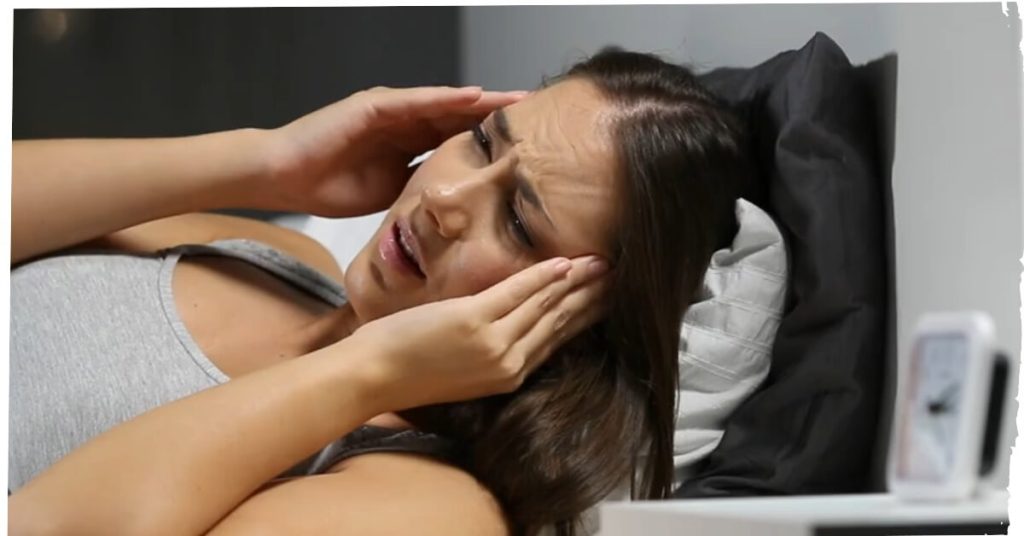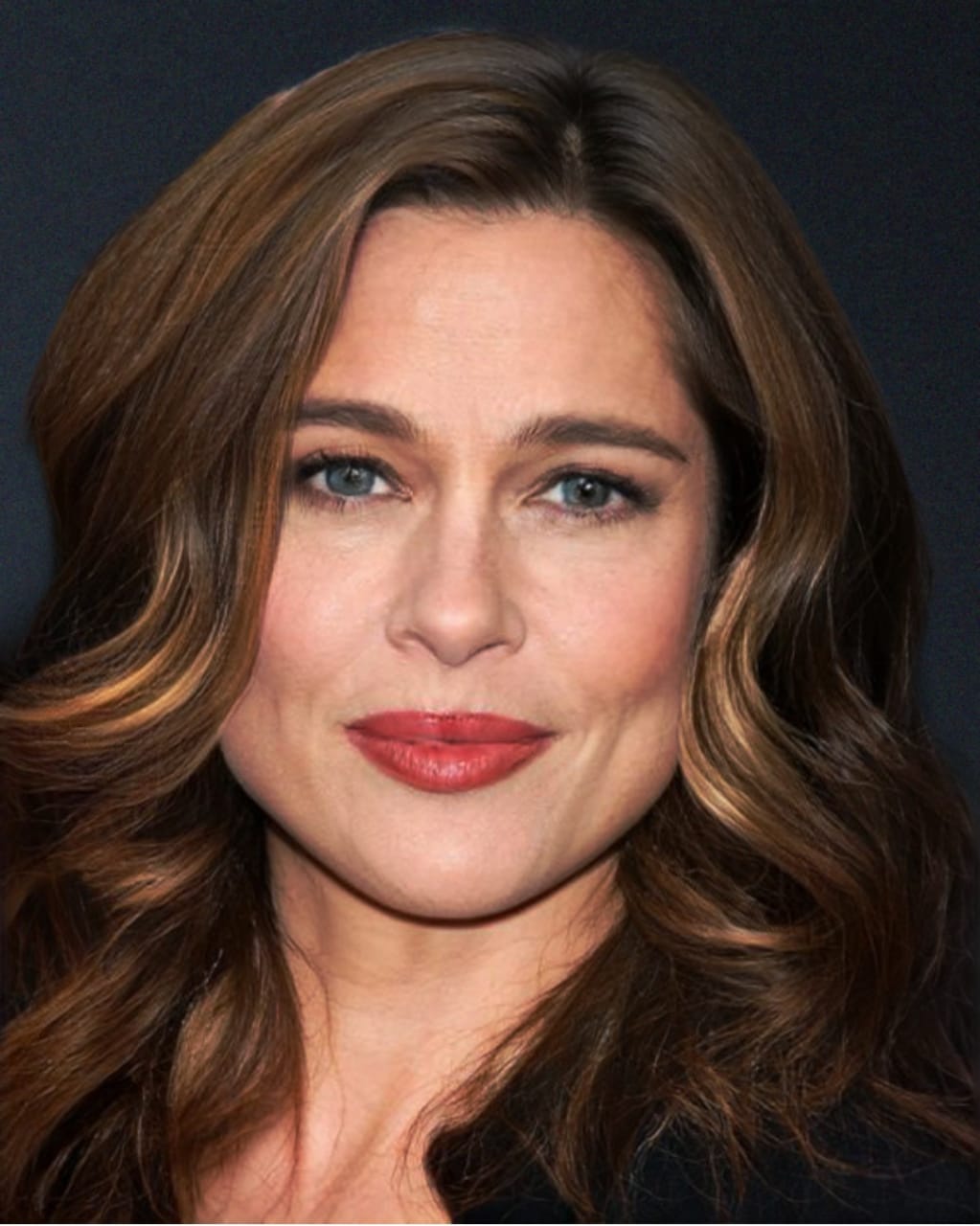
Napping is often seen as a delightful way to recharge yourself and regain energy during the day, right? The promise of waking up refreshed and ready to tackle the remainder of the day after a nap is enticing, isn’t it? However, what happens when you wake up from your peaceful slumber only to be greeted by a pounding headache? The phenomenon of experiencing a headache after a nap can be puzzling and disruptive, leaving you searching for answers.
A headache after a nap is not an uncommon experience, and while it may not always be a cause for concern, it can still interfere with daily activities.
In this article, we delve into the perplexing issue of “headache after nap” and explore its potential causes, effective remedies, FAQs and more.
Table of Contents
Why Do I have A Headache After A Nap? (Causes Of Headache After Nap)
Headaches after naps often have underlying causes that need to be identified and treated. Understanding the specific cause of your post-nap headache is essential for finding effective remedies. There may be multiple reasons for having a headache after a nap. Some of them are:
1. Breathing Problems And Snoring
Breathing problems and snoring can cause headaches after a nap by:
- Decreasing oxygen supply in brain
- Increasing carbon dioxide level in blood
- Increasing muscle tension in head, neck and jaws
- Interfering with your sleep
2. Bruxism (Teeth Grinding)
Sleep bruxism, which is the unconscious grinding of your teeth in your sleep, may cause post-nap headaches. When you grind your teeth while you are sleeping, you put a lot of pressure on your jaw muscles, which can lead to pain in your head and teeth when you wake up.
3. Sleep Disorders
Certain sleep disorders, such as insomnia, can disrupt sleep patterns and contribute to headaches after a nap. People with these conditions may experience fragmented or poor-quality sleep, leading to post-nap headaches.
4. Caffeine Withdrawal
Individuals who regularly consume caffeinated beverages, such as coffee or tea, may experience headaches after a nap if they have not had their usual dose of caffeine. Abruptly reducing or skipping caffeine intake can result in withdrawal symptoms, including headaches.
5. Sleep Apnea
Sleep apnea is a condition that causes you to stop breathing briefly during sleep. This can disrupt your sleep, buildup carbon dioxide, and reduces oxygen level in your blood leading to headaches when you wake up.
6. Sleep Inertia
Sleep inertia is the transitional state of grogginess and confusion that can occur when you suddenly wake up from a deep sleep. When you abruptly wake up from a nap, it can lead to a headache due to the sudden disruption of the sleep cycle. This is more likely to occur if your nap is too long. Limiting your naps to 20-30 minutes can help prevent this.
7. Sleep Hygiene
When it comes to sleep hygiene, it encompasses various factors such as your sleep environment, bedtime routines, and sleep habits. Using an unsuitable pillow or mattress, adopting uncomfortable sleeping positions, and experiencing either excessive or insufficient sleep can all disrupt your sleep quality and circadian rhythm, leading to headaches after naps.
8. Dehydration
When you sleep, your body continuously loses water through breathing and sweating. So, napping can dehydrate you if you don’t drink enough water beforehand. Dehydration can cause headaches after a nap because it can lead to a decrease in blood volume. When blood volume decreases, the heart has to work harder to pump blood throughout the body. This can put stress on the blood vessels in the head, which can lead to a headache. Dehydration can also cause a decrease in the amount of cerebrospinal fluid (CSF) in the brain. CSF is a clear fluid that surrounds the brain and spinal cord. It helps to cushion the brain and protect it from injury. When CSF level decreases, it can put pressure on the brain, which can also lead to a headache.
9. Hypotension
Hypotension is when your blood pressure is lower than normal. When you nap, your blood pressure can drop even lower. This can cause a headache because your brain is not getting enough blood.
10. Low Blood Sugar Levels (Hunger)
When you nap without eating sufficiently, your blood sugar goes down, and your brain doesn’t get enough glucose and this can trigger/cause a headache when you wake up from your nap. This happens because your brain needs glucose to function properly and eating a small amount of food can help to prevent this.
11. Stress
Stress can cause headaches in a number of ways, including:
- Muscle tension: When you’re stressed, your muscles tense up, which can lead to headaches.
- Changes in blood flow: Stress can cause blood vessels to constrict, which can reduce blood flow to the brain and lead to headaches.
- Changes in hormones: Stress can cause the release of certain hormones that can trigger headaches.
- Changes in sleep patterns: Stress can disrupt sleep patterns, which can lead to headaches.
12. Eye Strain
If you engage in activities that strain your eyes before or during your nap, such as reading or using electronic devices, it could lead to eye strain headaches upon waking up.
13. Pregnancy
During pregnancy, tiredness can be common, leading to increased frequency of napping. However, it is possible to experience headaches upon waking up. Various factors can contribute to these headaches, such as:
- Dehydration
- Low blood sugar
- Sinus congestion
- Hormonal changes
- Stress
- Sleep apnea
- Preeclampsia: Preeclampsia is a serious pregnancy condition that can cause high blood pressure, protein in the urine, and headaches.
Pre-Existing Conditions That Increase The Risk Of Headache After Nap
- Migraine. Individuals with migraines are more likely to experience headaches after a nap.
- Chronic Daily Headache. Chronic daily headache is a condition where an individual experiences headaches for 15 or more days a month. This condition can increase the likelihood of headaches after a nap.
- Cluster Headaches. Cluster headaches are a type of headache that occur in clusters over a period of weeks or months. They are often accompanied by other symptoms, including eye redness and nasal congestion. Cluster headaches can also increase the risk of headaches after a nap.
- Hypertension. Individuals with hypertension, or high blood pressure, are more likely to experience headaches after a nap.
Home Remedies Of Headaches After A Nap
- Maintain Consistent Sleep Patterns: Establishing a regular sleep schedule can help regulate your body’s internal clock, minimizing the likelihood of headaches after a nap. Aim for a consistent sleep routine that includes a regular bedtime and wake-up time.
- Gradual Awakening: Instead of abruptly waking up from a nap, try to transition slowly by setting an alarm that gradually increases in volume or using gentle, gradual wake-up lights. This can help reduce sleep inertia and alleviate headaches.
- Stay Hydrated and Limit Coffee and Alcohol: Ensure that you stay adequately hydrated throughout the day, especially before and after napping. Drink plenty of water and limit the consumption of diuretic beverages, such as coffee and alcohol, which can contribute to dehydration.
- Manage Caffeine Intake: If you are accustomed to consuming caffeine, try to maintain a consistent level of intake. Avoid abrupt changes in caffeine consumption to prevent withdrawal symptoms and associated headaches.
- Address Underlying Sleep Disorders: If you suspect that an underlying sleep disorder is contributing to post-nap headaches, consult a healthcare professional for a thorough evaluation. They can diagnose and treat any sleep-related conditions that may be impacting your sleep quality.
- Practice Relaxation Techniques: Before napping, consider incorporating relaxation techniques, such as deep breathing exercises or progressive muscle relaxation. These techniques can help reduce stress and promote a more restful nap, potentially minimizing the occurrence of headaches afterward.
- Manage Stress Levels: High stress levels can contribute to headaches, so it’s important to incorporate stress management techniques into your daily routine. Engage in activities like meditation, yoga, deep breathing exercises, or engaging hobbies to help relax your mind and reduce stress.
- If you are getting a headache after a nap during pregnancy, it is important to ensure proper hydration by drinking an adequate amount of water and limiting caffeine intake, as it can contribute to dehydration. Additionally, maintaining a regular eating pattern is crucial. If headaches persist, it is important to consult with an obstetrician to discuss your symptoms and seek further guidance.
- Eat Regular Meals. Skipping meals can make your blood sugar levels drop, which can trigger a headache. Eat regular meals throughout the day to keep your blood sugar levels stable.
- Exercise Regularly. Exercise can help to improve your sleep quality and reduce stress, both of which can contribute to headaches. Aim for at least 30 minutes of moderate-intensity exercise most days of the week.
- If you snore or have other breathing problems during sleep, it’s important to see a doctor to get treatment. Treatment can help to improve your sleep quality and reduce your risk of headaches after a nap.
Over-The-Counter (OTC) Medications For Headache After Nap
Ibuprofen: Ibuprofen is a nonsteroidal anti-inflammatory drug (NSAID) that can reduce inflammation and relieve headache symptoms.
Acetaminophen: Acetaminophen is a pain reliever that can be used to manage headache symptoms.
Naproxen: Naproxen is an NSAID that can be used to relieve headache symptoms.
Aspirin: Aspirin is an NSAID that can reduce inflammation and relieve headache symptoms.
Best Practices For Medication Management Of Headache After Nap
- Always Read Labels and Instructions Carefully. Reading labels and instructions carefully can help prevent medication errors.
- Consult a Doctor before Using Any Medication. Consulting a doctor before using any medication, even over-the-counter medications, can ensure that the medication is safe and effective.
- Avoid Frequent Use of OTC Pain Relievers. Frequent use of over-the-counter pain relievers can lead to medication overuse headache, a condition where headaches occur due to excessive medication use.
When To Seek Medical Help For Headache After Nap
You need to consult a healthcare professional for an accurate diagnosis and appropriate treatment for headaches after naps if you have:
- Frequent, acute, and persistent headaches after napping.
- Increasing severity or worsening of post-nap headaches.
- Presence of accompanying symptoms such as dizziness, fever, nausea, or changes in vision.
- Post-nap headaches that significantly interfere with daily life and activities.
Frequently Asked Questions:
-
Can Dehydration Really Cause Headaches After A Nap?
Yes, dehydration can cause headaches after a nap by reducing blood flow to the brain and causing an increase in brain pressure.
Actually, when you are dehydrated, your brain shrinks slightly, which can put pressure on the blood vessels in your head and cause a headache. This is more likely to happen if you nap for a long time, or if you are napping in a warm place where you are likely to sweat more, or if you are already dehydrated before you nap -
Is It Normal To Get A Headache After Nap?
While it is not uncommon, headaches after a nap should not be a regular occurrence and may require further investigation.
If you get a headache after a nap, it is usually mild and goes away on its own within a few minutes or hours. However, if you have frequent and severe headaches after naps or if the headaches after naps is accompanied by other symptoms, such as fever, nausea, or vomiting, you should see a doctor. -
Do Certain Sleeping Positions Increase The Risk Of Headache After Nap?
Sleeping in an awkward position can put pressure on the head and neck and thereby can increase the risk of headaches after a nap.
-
Can Over-sleeping Cause Headache After Nap?
Yes, over-sleeping can disrupt the sleep cycle and increase the risk of headaches after a nap.
-
What Are Some Herbal Remedies For Headache After Nap?
Herbal remedies, including ginger and peppermint, can be used to manage headache symptoms.
You can drink ginger juice or ginger tea to relieve yourself from a headache after a nap.
Whenever you have a post-nap headache, you may also try drinking mint tea or extract the juice of the mint leaves and apply it on your forehead. -
How Long Should A Nap Be?
The ideal length of a nap depends on your individual needs and schedule. Different nap durations can provide various benefits, so it’s important to consider your goals and how much time you have available.
The Centres for Disease Control and Prevention (CDC) suggests that the optimal nap durations for adults are 20 minutes or 90 minutes. Here’s the reasoning behind these recommendations:
10-20 minute Nap (Power Nap): Naps lasting 10-20 minutes, known as power naps, offer the advantage of leaving you refreshed, energized, and alert upon waking. Additionally, well-timed power naps have minimal impact on your nighttime sleep, allowing you to maintain your regular bedtime routine without difficulty falling asleep.
90-minute Nap (Full Nap): 90-minute naps enable you to cycle through all stages of sleep without experiencing sleep inertia since you avoid waking up during deep sleep. A longer nap duration (90 minutes) allows you to go through a complete sleep cycle, including both non-rapid eye movement (NREM) and rapid eye movement (REM) sleep. This can enhance creativity, memory retention, and overall cognitive performance. These longer naps can provide a profound sense of rejuvenation, enhanced creativity, improved focus, and increased physical energy.
If you arise from a nap within 20 minutes (prior to entering deep sleep) or around 90 minutes (which is estimated to be the conclusion of a sleep cycle), any grogginess caused by sleep inertia upon awakening might be reduced. Additionally, it is likely to dissipate more swiftly, typically within 15 to 30 minutes, as you are more likely to wake up from lighter sleep stages.
Conclusion
Headache after nap can be a common occurrence for some individuals, but it can also be a sign of an underlying health condition. By understanding the causes, prevention techniques, and remedies for headache after nap, individuals can take steps to manage the symptoms and improve their overall quality of life.
References:
- Sleep Disorders And Headache. https://americanmigrainefoundation.org/resource-library/sleep/ [Accessed on: June 16, 2023]
- Overview: Teeth Grinding (Bruxism). https://www.nhs.uk/conditions/teeth-grinding/ [Accessed On: June 16, 2023]
- Sleep Apnea. nhlbi.nih.gov/health-topics/sleep-apnea [Accessed On: June 16, 2023]
- CDC. NIOSH Training for Nurses on Shift Work and Long Work Hours [Accessed On: June 16, 2023]
Julie Brown, PharmD
Expert In Pharmacy & Drug Information
 Julie Brown is a pharmacist with over 12 years of experience in clinical, academic, and administrative roles. She is currently the Director of Pharmacy Content at HealthMedInfo, where she oversees the development and production of educational content for healthcare professionals and consumers.
Julie Brown is a pharmacist with over 12 years of experience in clinical, academic, and administrative roles. She is currently the Director of Pharmacy Content at HealthMedInfo, where she oversees the development and production of educational content for healthcare professionals and consumers.
Julie Brown received her Doctorate in Pharmacy (PharmD) from St. Louis College of Pharmacy. As a Doctor of Pharmacy, she has extensive knowledge and expertise in various aspects of pharmaceuticals, medications, and their use in healthcare. With her background, Julie Brown is well-equipped to provide accurate and reliable information regarding drugs, their effects, interactions, dosage guidelines, and other pharmaceutical-related inquiries.
READ MORE…
Dr. George McIntosh, MD, PhD
Expert In
Neurology & Pain Management
 Dr. George McIntosh, MD, PhD, is a highly accomplished physician-scientist and expert in clinical development. He is board-certified in both neurology and pain medicine, and has specialized training from renowned institutions such as the Cleveland Clinic and Massachusetts General Hospital.
Dr. George McIntosh, MD, PhD, is a highly accomplished physician-scientist and expert in clinical development. He is board-certified in both neurology and pain medicine, and has specialized training from renowned institutions such as the Cleveland Clinic and Massachusetts General Hospital.
Dr. McIntosh’s research interests include the mechanisms of pain, the development of new pain treatments, and the use of technology to improve the delivery of pain care. Dr. McIntosh is a passionate advocate for patients with pain.
READ MORE…